The Weekly Blog: 4/25/07
NOTE: This post was originally published at princetonalumniweekly.blogspot.com.
Understanding Virginia Tech
A desire to change one’s image in the face of others often serves as the driving force for the violence of school shooters, according to Katherine Newman, a professor of sociology and public affairs, who spoke about the Virginia Tech shootings at McCormick Hall April 23. Newman’s research on previous school shootings indicated that warning signs preceded almost all shootings, but that people were often reluctant to act on those signs. “There isn’t a single rampage shooting that wasn’t preceded by a whole litany of signals,” said Newman, who wrote the 2004 book Rampage: The Social Roots of School Shootings.
In the cases of earlier shootings, people who interacted with the shooters were reluctant to report disturbing behavior out of a concern for their own reputations, Newman said. The Virginia Tech case is especially troubling because people reported the shooter’s alarming behavior, she said.
Keith Whittington, a politics professor who also spoke at the April 23 event, said the Virginia Tech shootings would not cause gun control regulation to change in a significant way. The shooting may, however, spur “more funding to make existing gun control laws work better,” he said.
Johnson ’97 brings ‘ownership, pride’ to men’s basketball
As a basketball player, Sydney Johnson ’97 played a key role in several memorable Princeton victories, including an overtime win over Penn in the Ivy League playoff in 1996 and the Tigers’ upset of UCLA in the NCAA tournament less than a week later. But the game that teammate Jesse Rosenfeld ’97 remembers when he thinks about Johnson came two years earlier.
Late in the 1993-94 season, Princeton squared off against Penn with the Tigers’ Ivy title hopes on the line. Johnson, then a freshman, scored a team-high 17 points and did an admirable job covering Jerome Allen, the Penn star who would be that year’s Ivy Player of the Year. But Princeton lost by 10, and afterward, Rosenfeld said, Johnson was nearly inconsolable. “It showed that sense of ownership and pride,” Rosenfeld said.
This week, when Johnson was introduced as Princeton’s head coach, he stressed pride in the program and in the University, calling Princeton a “unique and special place.” Johnson said that he was surprised when Joe Scott ’87 left the program in March and thrilled to be chosen as Scott’s successor. “I just knew that this was the right place for me,” Johnson said at an April 23 press conference. “There wasn’t much hesitation.”
Johnson, who captained Princeton’s team for three seasons, played professionally in Spain and Italy before becoming an assistant coach at Georgetown in 2004. Working under John Thompson III ’88, Johnson helped the Hoyas win the Big East and reach the NCAA Final Four in 2007.
Princeton in bloom
The colors of spring are in the air as Brian Strom ’06 jogs along University Place April 20.
Photo by Frank Wojciechowski
Men’s volleyball takes on Penn State
Princeton men’s volleyball topped Juniata in an Eastern Intercollegiate Volleyball Association quarterfinal match April 22 to reach the league semifinals for the first time in four seasons. The team’s reward? An April 26 matchup with powerhouse Penn State in State College, Pa.
The Nittany Lions, ranked No. 7 nationally, were undefeated in EIVA regular-season matches, and they placed five of six starters on the league’s All-East first team. The young Tigers understand who they are up against, but they are looking to make the most of their opportunity. “With only two seniors starting, it will be a good experience,” head coach Glenn Nelson said in a news release. “Penn State is very good, but we’ll go up there, give them a fight, and see what happens.”


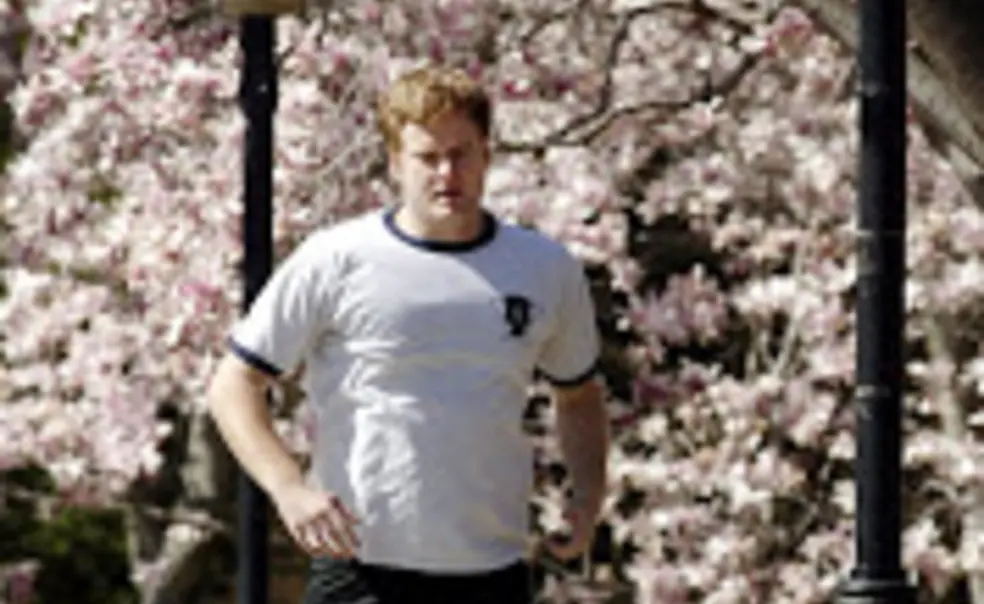
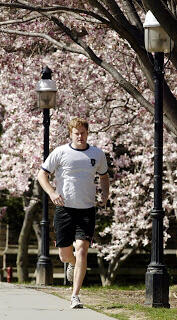





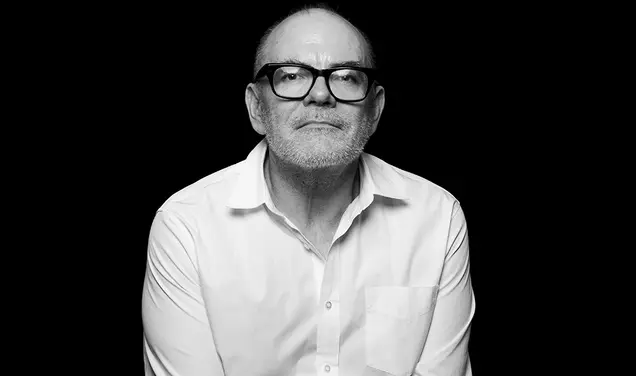
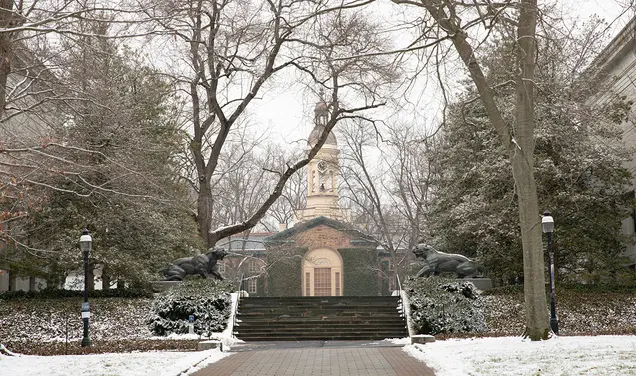
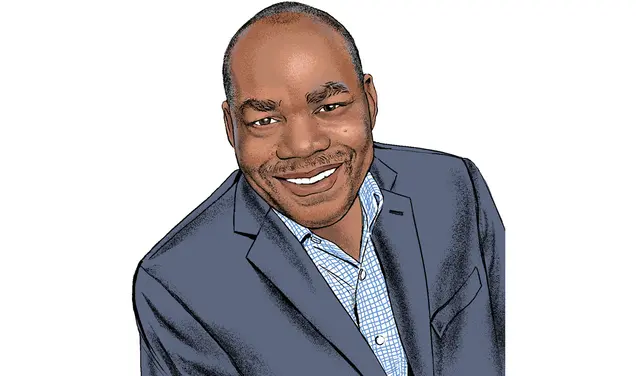

No responses yet